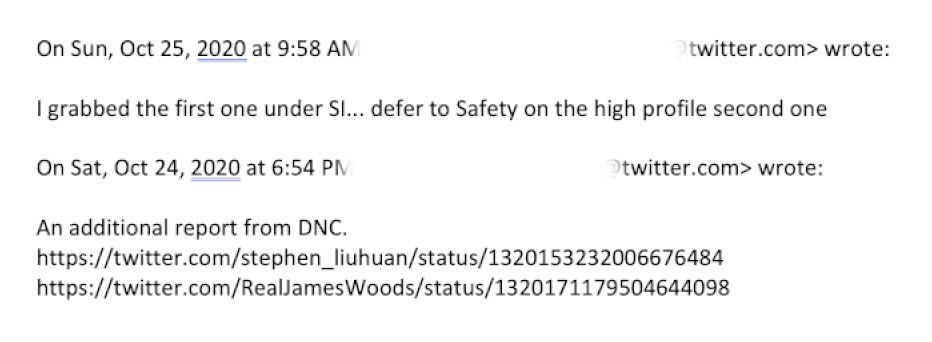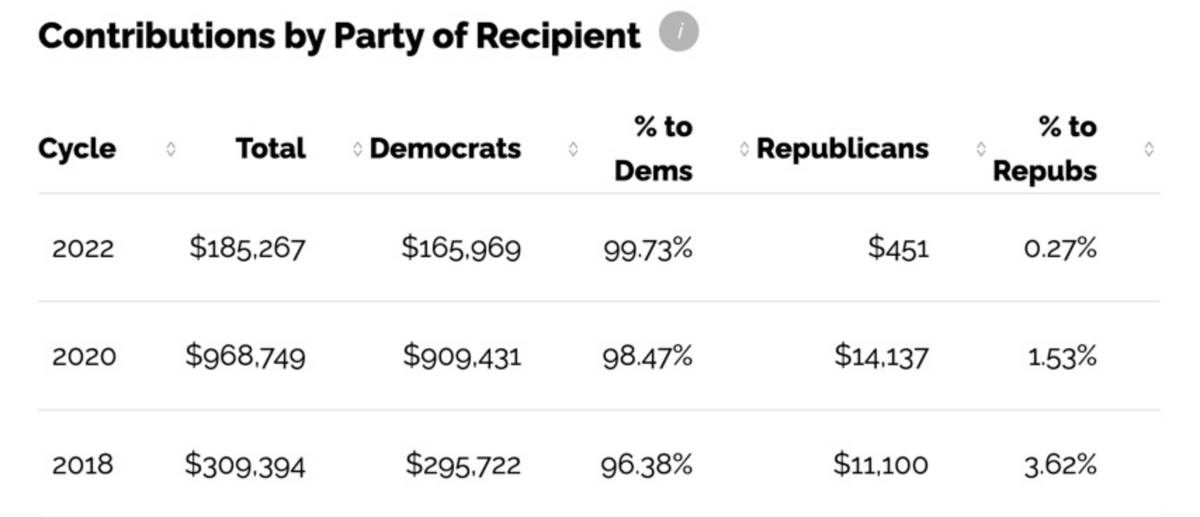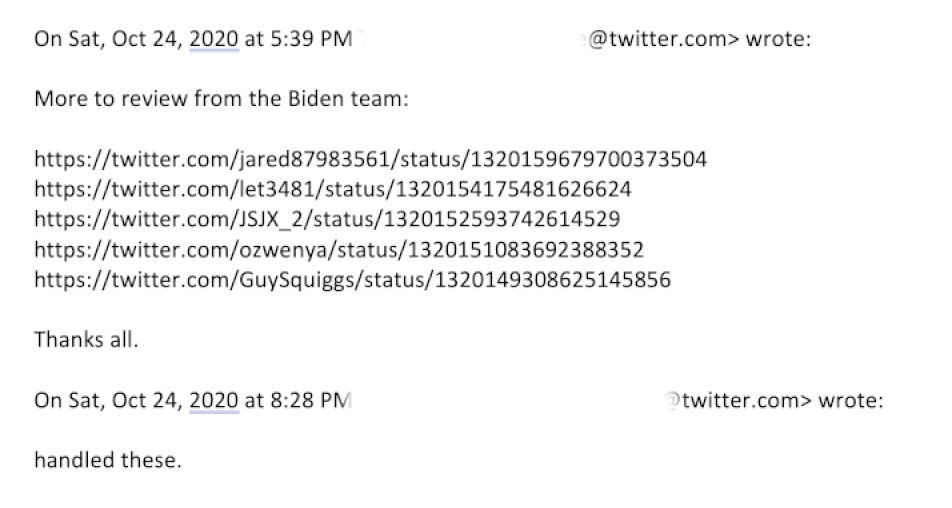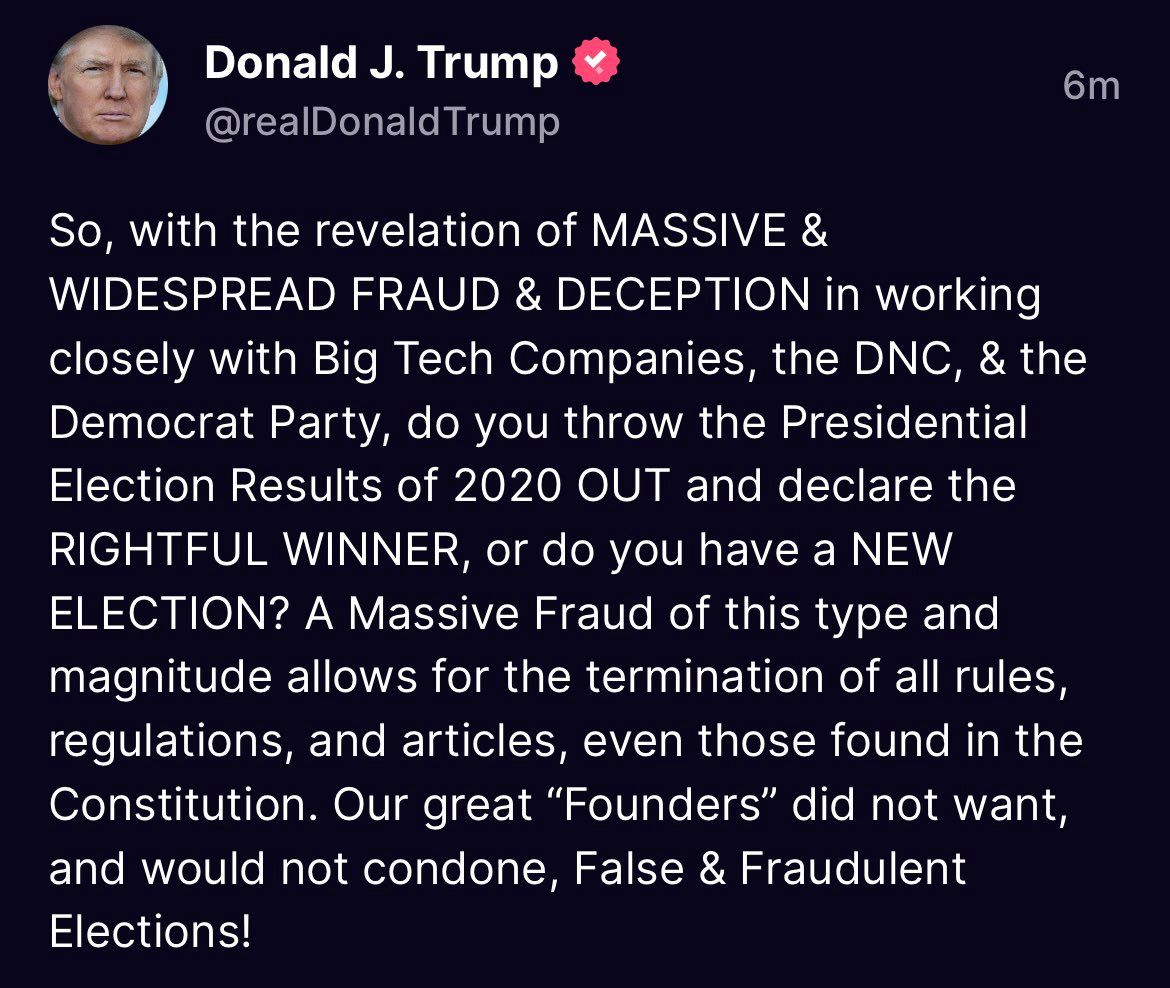Taibbi - The Twitter Files, Part 1
-
@jon-nyc said in Taibbi - The Twitter Files, Part 1:
Well, he writes narrative driven pieces and has at least since he got back from Moscow. I've been critical of him since he ran a drum circle in Zucotti park and wrote laughable shit for Rolling Stone. Back then his narrative was pro-leftist Occupy Wallstreet stuff, today it's more bog-standard twitter contrarianism. He always has a power structure in mind against whom he imagines and writes his stories, and that's the thread that is consistent throughout his career.
I’d be curious what specifically makes you think he won’t be an honest broker of the information he has access to. Duly noted that you’ve marginalized and dismissed him in your own head, but at some point those dismissals become too common to take seriously.
Like I said I’ve been reading him for 15 years. He does narrative-based journalism.
It’s not that I think he’ll make shit up, most of the time narrative-based journalism is ‘true’ in the sense that the checkable facts are correct, it’s just that the approach is misleading as only the facts that support the narrative are presented.
-
Like I said I’ve been reading him for 15 years. He does narrative-based journalism.
It’s not that I think he’ll make shit up, most of the time narrative-based journalism is ‘true’ in the sense that the checkable facts are correct, it’s just that the approach is misleading as only the facts that support the narrative are presented.
@jon-nyc said in Taibbi - The Twitter Files, Part 1:
Like I said I’ve been reading him for 15 years. He does narrative-based journalism.
It’s not that I think he’ll make shit up, most of the time narrative-based journalism is ‘true’ in the sense that the checkable facts are correct, it’s just that the approach is misleading as only the facts that support the narrative are presented.
Well as I recall from reading him, his narratives are generally at odds with larger and more common and more dishonest narratives. It would be difficult to combat narratives without carving out a narrative shaped hole in them. I was curious if you could offer an example of lies of commission or omission he’s told in the past. But if not that’s ok. I’m pretty sure this investigation is along the lines of what he’s done in the past, and of the journalists who have nothing to lose reputationally by being honest as they dissect left leaning biases in the halls of cultural power, he is a fine choice by Musk to lead the task.
-
Opinion from Red State on James Woods...
-
Opinion from Red State on James Woods...
@Jolly said in Taibbi - The Twitter Files, Part 1:
Opinion from Red State on James Woods...
Known to have the highest IQ in Hollywood.
-
@Jolly said in Taibbi - The Twitter Files, Part 1:
Isn't all journalism narrative based?
Taibbi has built a career dissecting popular narratives. Where Jon's disdain comes from, was in his take down of Goldman Sachs 15 years ago. Remember when Jon was palpably afraid of mob anger against investment bankers? That's around the time Taibbi was gaining fame with his journalism exposing some of the industry's worst practices. So the process in jon's head began, where Matt became a marginalized and dismissed human being. It's a psychological threat-countering mechanism, and it well explains jon's rage against Trump's brand of populism too.
-
It’s a rather strange worldview that every opinion you don’t share must be the result of some psychopathology.
@jon-nyc said in Taibbi - The Twitter Files, Part 1:
It’s a rather strange worldview that every opinion you don’t share must be the result of some psychopathology.
I think you have a very normal psychology. Books have been written about normal and prectable error in human thought, judgment, and perception. I bet you've even read them.
-
@jon-nyc said in Taibbi - The Twitter Files, Part 1:
It’s a rather strange worldview that every opinion you don’t share must be the result of some psychopathology.
I think you have a very normal psychology. Books have been written about normal and prectable error in human thought, judgment, and perception. I bet you've even read them.
-
The ironic thing is the only substantive thing we learned from this Twitter thread that we didn’t already know is that the GOP also had back channels to Twitter to report tweets.
@jon-nyc I didn't know that Twitter blocked DMs between people, a practice usually reserved for the most reprehensible things - child porn.
I didn't know that Trump's press secretary was suspended.
The fact that the GOP had access to report tweets is interesting. Did they, in fact, report those?
-
Why don’t you read his famous “vampire squid” article and tell me if you think that represents good journalism, and that only someone’s fear for their personal safety could lead them to think otherwise.
@jon-nyc said in Taibbi - The Twitter Files, Part 1:
Why don’t you read his famous “vampire squid” article and tell me if you think that represents good journalism, and that only someone’s fear for their personal safety could lead them to think otherwise.
Maybe you could point me to a serious refutation of that piece? I can't read the original as it's behind a paywall.
-
@jon-nyc I didn't know that Twitter blocked DMs between people, a practice usually reserved for the most reprehensible things - child porn.
I didn't know that Trump's press secretary was suspended.
The fact that the GOP had access to report tweets is interesting. Did they, in fact, report those?
@George-K said in Taibbi - The Twitter Files, Part 1:
@jon-nyc I didn't know that Twitter blocked DMs between people, a practice usually reserved for the most reprehensible things - child porn.
I didn't know that Trump's press secretary was suspended.
You or I might not have known but it was known and reported about.
The fact that the GOP had access to report tweets is interesting. Did they, in fact, report those?
Matt didn’t tell us, I guess it’s not part of his narrative.
-
Searching for serious rebuttals to Taibbi's piece, I found one person's attempt to describe the mainstream fallout:
https://archives.cjr.org/the_audit/taibbi_goldman.php
Mainstream financial journalism is doing its level, eye-rolling, heavy-sighing best to stuff Matt Taibbi back into the alt-press hole he came from, but he’s not going along with it, and the mainstreamers in any case are making a big mistake.
The Rolling Stone writer cemented his status as the enfant terrible of the business press with “The Great American Bubble Machine,” a 10,000-word excoriation of Goldman Sachs, a muckraker’s-eye view of Goldman history, exploring the bank’s and Wall Street’s contributions to various financial disasters, starting with the Great Depression, skipping to the Tech Wreck, the Mortgage Wreck, the oil bubble of 2008, the bailout, and the looming cap-and-trade plan. Salted with “fuck”s, “shit”s and written with brio and hyperbole in the New Journalism tradition, it caught the financial community, which very much includes the financial media, utterly off-guard, unused as it is to hearing its flagship described as a “giant vampire squid wrapped around the face of humanity.”
Financial cognoscenti quickly sought to dismiss the piece as so much conspiracy-mongering perpetrated by a financial illiterate. Funny, but that illiterate’s piece ran more than a month ago, and people can’t stop talking about it. Perhaps not coincidentally, it feels like the general financial news has been all-Goldman, all-the-time ever since.
Ex-Deal and Wall Street Journal staffer Heidi Moore stepped into a buzzsaw last week week when she wrote one of the biggest non-sequiturs of the financial crisis, a column in Slate’s Big Money arguing that Goldman’s success comes from the fact it’s better at what it does than everyone else, therefore, apparently, criticism is unwarranted.
As Taibbi (who needs no help defending himself) pointed out on his own blog, Moore addresses precisely none of the substantive criticisms that have been leveled at the bank, including big ones, like (1) buying predatory loans, (2) selling defective mortgage-backed securities while (3) shorting them at the same time, and (4) buying defective insurance from American International Group, then having those bad bets redeemed in full by government programs ratified by ex-Goldman executives. This is to say nothing of the role ex-Goldman alums played in laying the groundwork for the decade’s financial recklessness—Robert Rubin’s contribution to deconstructing financial regulation and Henry Paulson’s lobbying to loosen capital restrictions in 2004, to name just two.
And it goes on. As the author of that piece notes, it's generally eyerolls and giggles in place of rebuttals. Yep, that's how that works. We can watch it here too.
For all the clamor, criticism of what Taibbi’s actually written has been surprisingly weak. The best critics could offer was that Taibbi exaggerated Goldman’s particular role in this or that crisis and that financial crises are far too complex for this frame (or for them, I suspect, any frame at all) —that and make disparaging remarks about Taibbi’s alleged self-righteousness, amateurism, ignorance, etc. While the attacks on Taibbi aren’t couched as defenses of Goldman, the net effect is the same.
-
@George-K said in Taibbi - The Twitter Files, Part 1:
@jon-nyc the RWEC called Trumps
tweetpostmessage political suicide.I wonder if they mean that literally, as intentionally ending things. Sometimes suicide is used to describe an accidental consequence of a stupid action. I can see it in the literal sense (as in intentionally ending his political aspirations), and I hope that's what it is. But it's not clear to me that he wouldn't continue pursuing the nomination with that messaging in place.
-
@George-K said in Taibbi - The Twitter Files, Part 1:
@jon-nyc the RWEC called Trumps
tweetpostmessage political suicide.I wonder if they mean that literally, as intentionally ending things. Sometimes suicide is used to describe an accidental consequence of a stupid action. I can see it in the literal sense (as in intentionally ending his political aspirations), and I hope that's what it is. But it's not clear to me that he wouldn't continue pursuing the nomination with that messaging in place.
-
Elon Musk and Tucker Carlson Don’t Understand the First Amendment
By David French
tl;dr
"Twitter is a private company—not the federal government."



